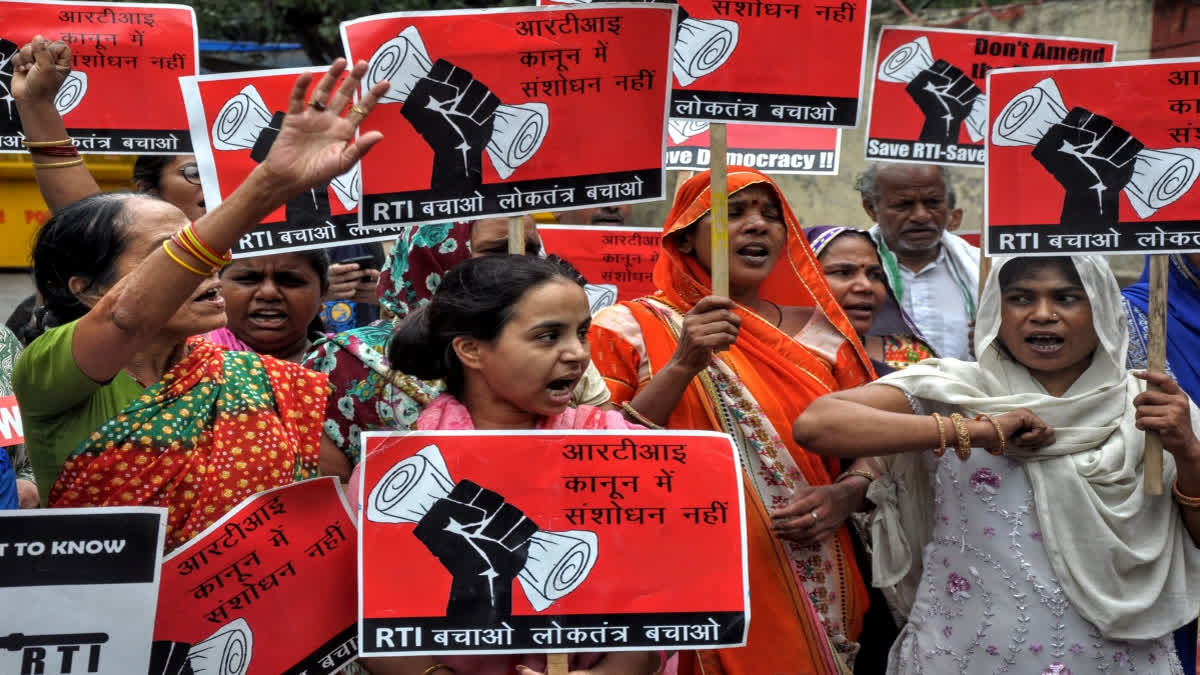Hyderabad:International Day for Universal Access to Information marks a global commitment to ensuring everyone has the right to seek and share information. This celebration stems from the belief that access to information is a key to building fair societies, enhancing knowledge, and fostering sustainable development.
The International Day for Universal Access to Information is celebrated on September 28 across the globe.
History
Recognising the significance of access to information, the 74th UN General Assembly proclaimed 28 September as the International Day for Universal Access to Information (IDUAI) at the UN level in October 2019. The day was proclaimed by the UNESCO General Conference in 2015, following the adoption of a resolution declaring 28 September of every year as International Day for Universal Access to Information (IDUAI).
The theme of the 2024 Global Conference
The theme of the 2024 Global Conference on Universal Access to Information is 'Mainstreaming Access to Information and Participation in the Public Sector'. The International Day of Universal Access to Information (IDUAI) serves as a platform to assess progress made in promoting access to information since the adoption of the UN Sustainable Development Agenda.
Access to information
Informed citizens can make informed decisions, for instance, when going to the polls. Only when citizens know how they are governed, can they hold their governments accountable for their decisions and actions. Information is power. Therefore, universal access to information is a cornerstone of healthy and inclusive knowledge societies.
Universal access to information means that everyone has the right to seek, receive and impart information. This right is an integral part of the right to freedom of expression. The media plays a crucial role in informing the public about issues of interest, but it relies on the ability to seek and receive information, too. Hence, the right to universal access to information is also bound up with the right to freedom of the press.
Right to Information around the World
In 1766: Sweden adopted the world's first access to information law. The law established press freedom, including the freedom to print and disseminate materials about the government, courts, and Parliament. The law, which forms part of Sweden’s Constitution, recognises that press freedom is contingent upon access to information.
In 1789:France’s Declaration of Human and Civic Rights which still forms part of the French Constitution establishes at Article 14 that: “All citizens have the right to ascertain, by themselves, or through their representatives, the need for a public tax, to consent to it freely, to watch over its use, and to determine its proportion, basis, collection and duration." Although this declaration has not been used as the basis for asserting a right of access to information in France, it does seem to provide for a public "right to know" about the spending of taxes.
In 1946: UN General Assembly Resolution 59(1) on Freedom of Information says: "Freedom of Information is a fundamental right and is the touchstone of all the freedoms to which the United Nations is consecrated. Freedom of Information implies the right to gather, transmit and publish news anywhere and everywhere without fetters."
In 1966: The United States of America adopts Freedom of Information Act: Enacted in 1966, The Freedom of Information Act (FOIA) is a federal law that establishes the public's right to obtain information from federal government agencies. The FOIA is codified at 5 U.S.C. Section 552. "Any person" can file a FOIA request, including U.S. citizens, foreign nationals, organisations, associations, and universities. In 1974, after the Watergate scandal, the Act was amended to force greater agency compliance. It was also amended in 1996 to allow for greater access to electronic information.
In 1981: Council of Europe adopts Recommendation to member States on the Access to Information Held by Public Authorities. This non-binding recommendation urges member states to ensure that "Everyone within the jurisdiction of a member state shall have the right to obtain, on request, information held by the public authorities other than legislative and judicial bodies." The recommendation reflects the trend in Europe to recognise a right of access to administrative information, as reflected in laws such as France’s 1978 law on the “improvement of relations between the public and the administration” and the Netherlands' 1978 “law on openness of the administration”.
Access to information in India
Right to Information Act 2005 (RTI)
Bringing Information to the Citizens
